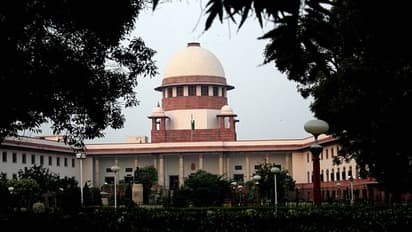Places of Worship Act case: SC says no fresh suits, orders or surveys on religious places till hearing ends

Synopsis
The Supreme Court has imposed a moratorium on new lawsuits related to the Places of Worship Act, 1991, as it hears petitions challenging the Act's constitutional validity.
New Delhi: The Supreme Court on Thursday (Dec 12) ruled on the high-profile Place of Worship Act case, directing that no new lawsuits related to Mandir-Masjid disputes should be filed until the case is heard. The court clarified that any existing cases will continue as usual. The ruling was made by a three-judge bench, consisting of Chief Justice Sanjiv Khanna, and Justices Sanjay Kumar and K.V. Viswanathan. The case involves a set of PILs challenging specific provisions of a 1991 law, which prevents individuals from filing cases to reclaim places of worship or alter their status as they were on August 15, 1947.
The SC instructed the Centre to respond to cross-pleas either opposing or seeking the enforcement of the Place of Worship Act. This hearing came amidst multiple lawsuits in various courts, including those related to the Gyanvapi Mosque in Varanasi, Shahi Idgah Mosque in Mathura, and Shahi Jama Masjid in Sambhal, which claim these structures were built after demolishing ancient temples and are requesting permission for Hindus to pray at these sites.
The law has sparked significant debate in recent years. Some argue that altering it could disturb social harmony and have far-reaching implications for India's unity. The Opposition, including the Congress party, considers the Act essential for preserving India's secular fabric and believes it should remain unchanged. In March 2021, a bench led by then Chief Justice S.A. Bobde called for the Centre's response to a plea filed by advocate Ashwini Upadhyay, challenging the constitutionality of certain provisions of the law.
Stay updated with the Breaking News Today and Latest News from across India and around the world. Get real-time updates, in-depth analysis, and comprehensive coverage of India News, World News, Indian Defence News, Kerala News, and Karnataka News. From politics to current affairs, follow every major story as it unfolds. Get real-time updates from IMD on major cities weather forecasts, including Rain alerts, Cyclone warnings, and temperature trends. Download the Asianet News Official App from the Android Play Store and iPhone App Store for accurate and timely news updates anytime, anywhere.